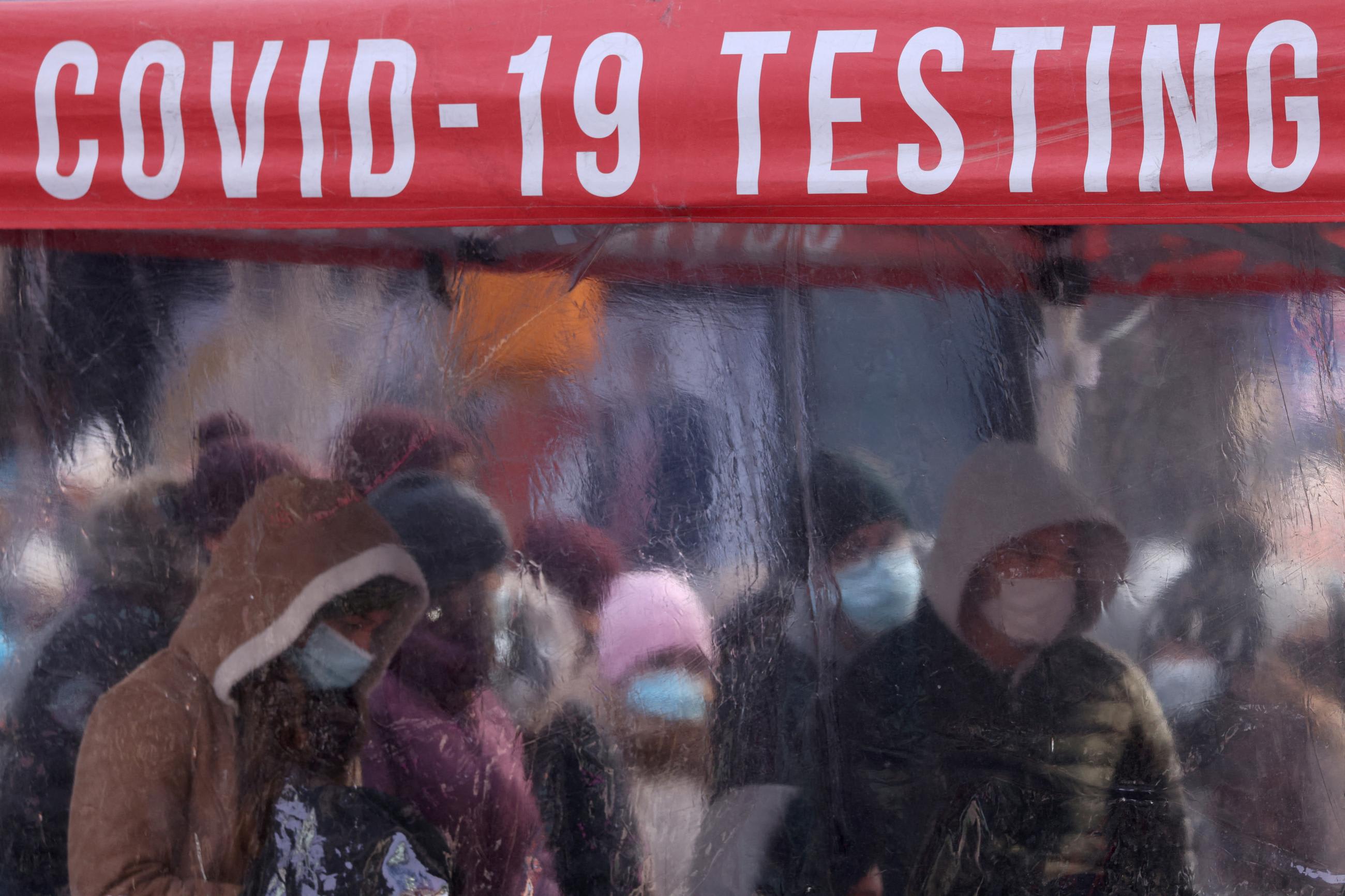As the omicron variant races around the globe, some nations, particularly those in Europe, are ramping up COVID-19 restrictions including the Netherlands and Denmark. The United Kingdom is considering a lockdown after the Christmas holiday. Worldwide, many countries have tightened their borders. Are these defensive maneuvers necessary? The science on omicron points to "no"—so far, omicron appears to be much less severe than the delta variant.
The speed at which omicron is spreading is stunning
Based on the signals we're seeing in the data from South Africa, Denmark, Norway, and the United Kingdom, we believe that omicron is just 3 percent as deadly as delta and roughly one tenth as likely to land a person in the hospital. Given omicron's lower severity, the negative cost of lockdowns and school closures—including financial turmoil, isolation, and lost learning time—far outweigh the benefits.
The speed at which omicron is spreading is stunning. We estimate that it will infect as many people in the next two months as SARS-CoV-2 has infected people in the past two years. But the good news is that in most countries, the death toll will be nowhere near as extreme as it was last winter. Unfortunately, omicron will still put pressure on hospitals, but in most countries it will be no worse than it was the previous winter. Still, omicron is bad news for health systems struggling with reduced staffs and burned-out workers. And as hospitals face another wave of infections, people may have to forego much-needed cancer screenings and surgeries.
Daily COVID-19 Deaths
Our forecasts indicate that in the United Kingdom, daily deaths will be less than a quarter of what they were in the winter of 2021. Across the Atlantic, in the United States, we anticipate that daily deaths will reach levels seen this past October, but will be roughly two-thirds what they were last winter. In Latin America, in Brazil, our forecasts show only a small omicron surge. And in Southeast Asia, we don't anticipate any omicron surge in Indonesia—most people acquired immunity to infection in the devastating delta surge that hit the country in 2021.
On the other hand, countries that have suppressed large COVID-19 waves in the past—such as Australia, New Zealand, and Canada—could potentially see the largest increases in hospitalization and deaths to date with omicron.
Having evaluated COVID-19 data from a variety of countries, we now have a better grasp of omicron's threat. We think that omicron is less deadly than the flu, but much more infectious. There were signs from South Africa that omicron was less severe than delta, but we needed data from other countries to confirm this. South Africa has a key factor working in its favor, protecting it against omicron: its population is relatively young. Now, we've seen data from Denmark, Norway, and the United Kingdom, which have older populations and are therefore at greater risk of dying from COVID-19 than South Africa's population. We've seen that omicron infections are less severe even in older adults in these European countries.
We estimate that omicron will infect as many people in the next two months as SARS-CoV-2 did in the past two years
Encouragingly, based on the data that we're seeing from Europe, we suspect that our forecasts will become more optimistic over time as we evaluate more data on omicron. As we obtain more data from more countries, we'll update our forecasts.
We're not yet sure how severe omicron will be for people who have never been vaccinated or infected by COVID-19—we don't yet have a clear picture from the data. Still, we know that this group remains most at risk of dying from omicron. For people who have never been vaccinated against COVID-19, getting vaccinated and wearing a mask is a powerful way to reduce your personal risk in the face of omicron.
Overall, the best protection against omicron is getting vaccinated or getting a third vaccine dose as soon as it's available to you, and wearing a mask in public. And for individuals who have a greater risk of developing severe COVID-19 due to their age and/or existing health problems, avoiding indoor gatherings can further reduce risk. If 80 percent of people globally wore a mask in public, it could save more than 150,000 lives by April 1, 2022 and it could reduce pressure on hospitals.

Amid the rapid spread of omicron, leaders can increase the number of people wearing masks by issuing mask mandates and enforcing these mandates with fines. Omicron spreads much faster than the delta variant, so wearing a high-quality, well-fitting mask—such as an N95, KF94, or KN95 mask—is especially important, particularly if you're indoors. Throughout the pandemic, we've seen how these masks have helped protect health care workers when they are caring for people with COVID-19. It's especially important for people to wear masks even if they aren't feeling sick. We anticipate that around 90 percent of people infected with omicron will not have any symptoms—this differs greatly from previous variants that we have seen to date, where most people with COVID-19 had symptoms.
In countries where extra vaccine doses are available, people can greatly reduce their chances of getting infected with omicron by getting a third vaccine dose. Globally, if everyone who is already fully vaccinated received a third dose of a vaccine, over 100,000 lives could be saved by April 2022. If leaders make a big push to get third doses in arms, this could cut the stress that health systems are experiencing.
To keep the global economy running and to ensure that children and young people can stay in school, employers and schools will need to revise their approach to testing and quarantine. Given the differences we're seeing in omicron compared to delta, hospitalizations for COVID-19, not cases, should inform public health leaders' actions during this phase of the pandemic.
Based on what we've learned about omicron, the world got lucky this time with a milder variant. We may not be as lucky next time. The next concerning variant that arises could be worse than any form of SARS-CoV-2 that we've seen to date. The only way to prevent this is by finding more efficient and equitable ways to vaccinate the world.

ACKNOWLEDGEMENTS: The authors would like to thank Rebecca Sirull for fact-checking assistance.
EDITOR'S NOTE: The authors are employed by the University of Washington's Institute for Health Metrics and Evaluation (IHME), which produced the COVID-19 forecasts described in this article. IHME collaborates with the Council on Foreign Relations on Think Global Health. All statements and views expressed in this article are solely those of the individual authors and are not necessarily shared by their institution












